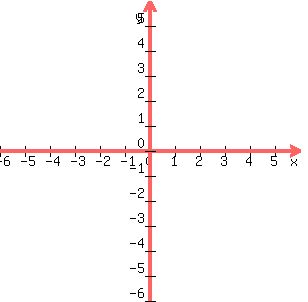Question 81637: I'm learning how to write my "results" in slope-intercept form. And I'm having a little difficulty trying to get these worked out and was wondering if I could get some assistance.
(0,5),m= -3/5
(-1,3) and (4,-2)
(2,-3) and (2,4)
I could really use the step by step process of how to do this, if possible. Thank you.
Answer by Edwin McCravy(20054)   (Show Source): (Show Source):
You can put this solution on YOUR website!
I'm learning how to write my "results" in
slope-intercept form. And I'm having a little
difficulty trying to get these worked out and
was wondering if I could get some assistance.
(0,5), m =  Substitute in the point slope formula:
y - y1 = m(x - x1)
where x1 = 0 and y1 = 5
y - 5 =
Substitute in the point slope formula:
y - y1 = m(x - x1)
where x1 = 0 and y1 = 5
y - 5 =  (x - (0) )
y - 5 = (x - (0) )
y - 5 =  x
y = x
y =  x + 5
That's the equation in the slope-intercept
form because we can compare it with
y = mx + b
and see that its slope m is x + 5
That's the equation in the slope-intercept
form because we can compare it with
y = mx + b
and see that its slope m is  and its
y-intercept (0,b) is the point (0,5)
---------------------------------------
1. (-1, 3) and (4,-2)
We first plot those two points and draw a line
through them to find out if it is vertical or
not. The equations of all lines can be placed
in slope-intercept form except the equations
for vertical lines. This is the graph we get: and its
y-intercept (0,b) is the point (0,5)
---------------------------------------
1. (-1, 3) and (4,-2)
We first plot those two points and draw a line
through them to find out if it is vertical or
not. The equations of all lines can be placed
in slope-intercept form except the equations
for vertical lines. This is the graph we get:
 We see that it is not vertical. So we can proceed
as usual:
We are to find an equation of the line containing
the points (-1,3) and (4,-2)
Use the slope formula:
y2 - y1
m = —————————
x2 - x1
where (x1, y1) = (-1,3) and (x2, y2) = (4, -2)
(-2) - (3) -5 -5
m = —————————— = ————— = ———— = -1
(4) - (-1) 4+1 5
Now substitute in the point slope formula:
y - y1 = m(x - x1)
y - 3 = (-1)(x - (-1) )
y - 3 = -(x + 1)
y - 3 = -x - 1
y = -x + 2
That's the equation in the slope-intercept
form because we can compare it with
y = mx + b
and see that its slope m is -1 and its
y-intercept (0,b) is the point (0,2)
---------------------------------------
(2,-3) and (2,4)
We plot those two points and draw a line
through them:
We see that it is not vertical. So we can proceed
as usual:
We are to find an equation of the line containing
the points (-1,3) and (4,-2)
Use the slope formula:
y2 - y1
m = —————————
x2 - x1
where (x1, y1) = (-1,3) and (x2, y2) = (4, -2)
(-2) - (3) -5 -5
m = —————————— = ————— = ———— = -1
(4) - (-1) 4+1 5
Now substitute in the point slope formula:
y - y1 = m(x - x1)
y - 3 = (-1)(x - (-1) )
y - 3 = -(x + 1)
y - 3 = -x - 1
y = -x + 2
That's the equation in the slope-intercept
form because we can compare it with
y = mx + b
and see that its slope m is -1 and its
y-intercept (0,b) is the point (0,2)
---------------------------------------
(2,-3) and (2,4)
We plot those two points and draw a line
through them:
 It is vertical, so we can't go the usual route.
Since vertical lines are the only kind of lines
which don't have slopes, there is no slope-intercept
form. But we can still write the equation. It is
simply this:
x = 2
because every point on that line has x-coordinate 2.
So x = 2 tells the story of every point on the line,
so that's all there is to the equation of that vertical
line.
Edwin
It is vertical, so we can't go the usual route.
Since vertical lines are the only kind of lines
which don't have slopes, there is no slope-intercept
form. But we can still write the equation. It is
simply this:
x = 2
because every point on that line has x-coordinate 2.
So x = 2 tells the story of every point on the line,
so that's all there is to the equation of that vertical
line.
Edwin
|
|
|